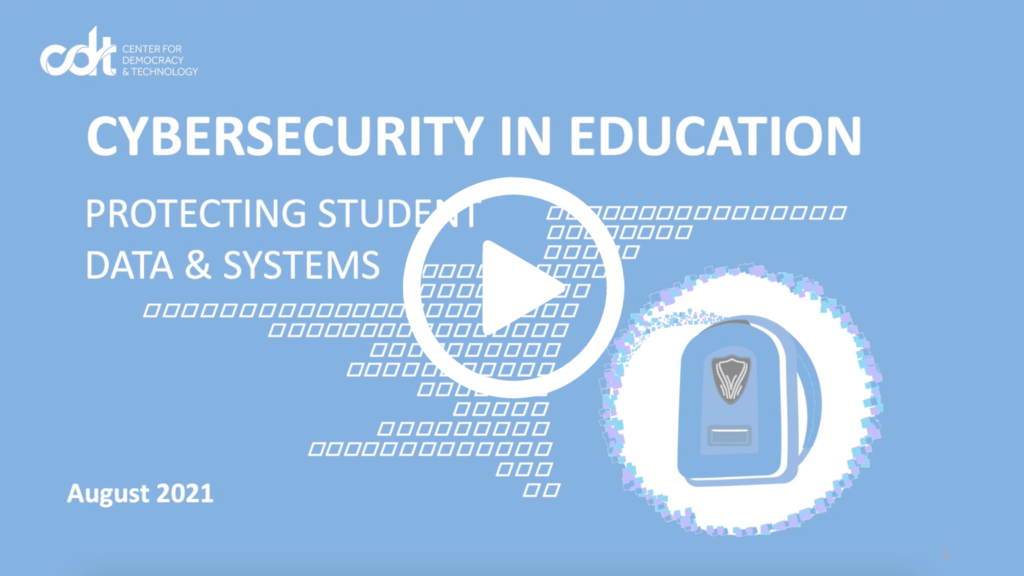Equity in Civic Technology, Privacy & Data
Training Module: Cybersecurity in Education 101

Practitioner training plays a vital role in ensuring that schools, local and state education agencies, and other education organizations use data and technology responsibly. CDT provides a suite of training modules that cover key principles of student privacy protection, cybersecurity, digital equity, and related issues. Here’s our full catalog of training modules.
Teachers and administrators in schools and districts often have access to substantial amounts of sensitive data about students and their families. Consequently, they play an important part in protecting students by ensuring that their data stays safe and sound. However, school staff and faculty don’t always have the cybersecurity knowledge they need to take on the role of data protectors, which puts students at risk of harm like privacy violations, identity theft, and loss of instructional time.
Fortunately, cybersecurity is not a new field, and there are some basic cybersecurity best practices that school staff can follow that will help them safeguard students. To help teachers and administrators get up to speed with these steps, CDT has written a Cybersecurity in Education 101 training guide education practitioners on key cybersecurity information such as:
- The importance of cybersecurity in an education context.
- Important terms and definitions.
- Best practices for keeping systems and data safe.
The materials are available in an interactive online training module*, which features downloadable slides, narrated audio recordings, a review quiz to test comprehension, and additional resources. The training is also available as a standalone video, slide deck, and review worksheet.
Practitioner training is an essential part of safe and responsible technology and data use, now more than ever. An understanding of these cybersecurity practices will help ensure that school systems and data are safe from harm.
*Note: The interactive training module is hosted by Thinkific, and is compatible with Chrome, Firefox, Safari, and Microsoft Edge. Users of Internet Explorer or other browsers can access the same material through our video and slides content, included below.


